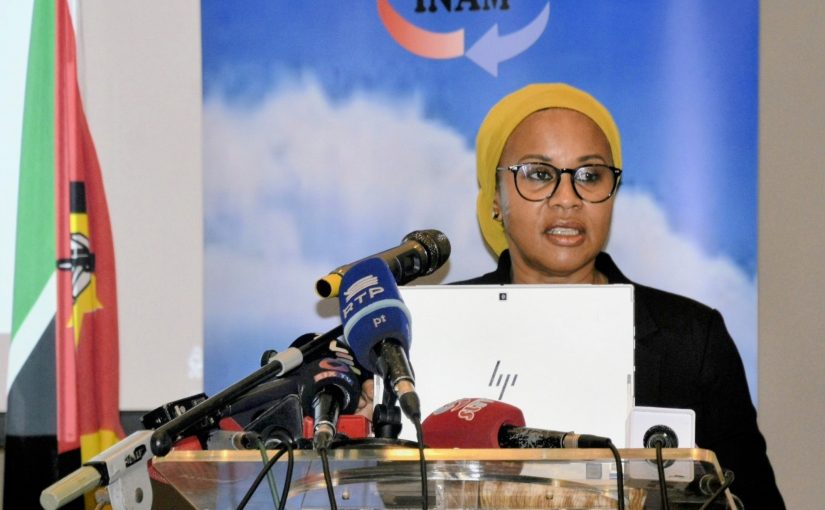Anger and fear as gang violence explodes in Cape Town
Mozambique: Real time meteorological system launched

Photo: INAM-Instituto Nacional de Meteorologia
The Mozambican Ministry of Communications and Digital Transformation has launched an Integrated Platform for Situational Impact Monitoring (PRISM), which is aimed at analysing climatic and meteorological events throughout the country in real time.
The PRISM enables the monitoring of climatic shocks online for subsequent analysis and decision-making in risk reduction actions. It also is aimed at reducing barriers to accessing the country’s climate information, given that it is free of charge, 24 hours a day.

According to Nilsa Miquidade, the Ministry’s permanent secretary, speaking on Monday at the launch ceremony in Maputo, the system will enable people to access climate information and local vulnerability, taking into account that the country is the victim of extreme weather events, which in recent years have become more frequent and more intense.
She explained that currently, the National Meteorological Institute (INAM) is facing challenges in accessing real-time climate or meteorological information that allows it to intervene in places where disasters are taking place.
“During 2024, the oceans continued to warm, sea levels rose and glaciers continued to melt at an alarming rate. Glaciers continue to retreat and Antarctic sea ice has reached the second lowest extent ever recorded, coupled with the fact that extreme weather conditions continue to have devastating consequences around the world”, she said.
For her part, the United Nations Resident Coordinator, Catherine Sozi, said that in recent years Mozambique has been hit by extreme climatic and meteorological events, cyclones, floods, drought induced by the El Nino phenomenon and irregular rainfall.

“These events are happening in ever shorter cycles, exacerbating humanitarian needs, increasing protection risks and wiping out hard-won development gains,’ she said.
She emphasized that the motto of this year’s celebrations and the new climate reality reminds everyone that early warning systems are not a luxury, but a necessity and a solid investment.
“Mozambique was chosen as a pilot country for the early warning initiative. For the Secretary General of the United Nations, António Guterres, it is also part of the funding mechanism for systematic prevention, through investment in meteorological stations throughout the country, as well as early warning systems that have saved many lives”, she said.













Leave a Reply
Be the First to Comment!
You must be logged in to post a comment.
You must be logged in to post a comment.